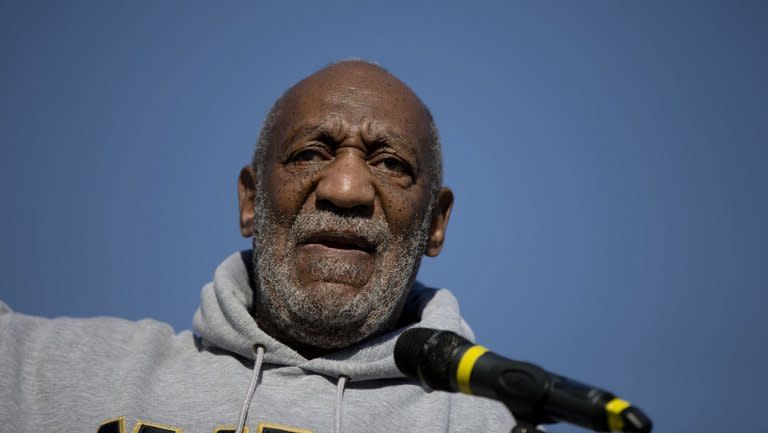Bill Cosby Loses Bid to Dismiss Libel Lawsuit Brought by Rape Accusers

Bill Cosby (AP Images)
By Eriq Gardner
In perhaps the most significant legal development since the scandal surrounding Bill Cosby erupted, a Massachusetts federal court on Friday denied the embattled comedian’s bid to dismiss a libel lawsuit brought by three women.
Tamara Green, Therese Serignese and Linda Traitz are the plaintiffs in the case. The women allege that they were victimized by a sexual assault by Cosby. But because of the statute of limitations, they can’t sue Cosby for the alleged crime.
Instead, the three women claim their reputations were tarnished when Cosby’s reps told news outlets that the rape claims were “fabricated,” “ridiculous” and “absurd,” among other comments.
In an opinion today, U.S. District Judge Mark Mastroianni rejected all of Cosby’s reasons to throw out the lawsuit at this juncture. He analyzed libel standards like whether the comments were “of and concerning” the defendants and whether the comments could be characterized as “predictable opinions.” The judge concluded that a jury could find the comments addressed the women and that the gist — basically that they fabricated tales of rape — is provable as true or false. It will be up to a jury to find whether the statements are capable of defamatory meaning.
This latest decision could prompt more lawsuits against Cosby. It also sets some precedent.
For one thing, Mastroianni addressed whether a celebrity can be liable for the comments of his reps.
“Given Defendant’s prominence in the entertainment field, the court infers he surrounded himself with people accomplished in media relations and legal matter,” writes the judge. “The court also infers those making Defendant’s public statements had an open line of communication with him as well as some historical perspective on his public relations matters. Based on the facts and inferences, the court finds it plausible at this point to conclude (1) those agents would have had, at a minimum, some sense of Defendant’s alleged conduct, such that their duty of care would have required them to take steps to determine the truth or falsity of the statements, and (2) the content of their responsive statements demonstrates such reasonable care was not taken.”
Mastroianni also rejected Cosby’s argument that he was within rights to make “privileged utterances of self-defense.”
“The court recognizes that some jurisdictions do apply a version of the conditional self-defense privilege, which allows individuals, in certain circumstances, to publish defamatory responsive statements necessary to defend their reputation,” the judge responded. “However, as recognized by the cases Defendant himself cites … such a privilege does not permit a defendant to knowingly publish false statements of fact.”
In other words, what Cosby’s reps said about his accusers could be shown to be knowingly false, which rises above being merely false.

